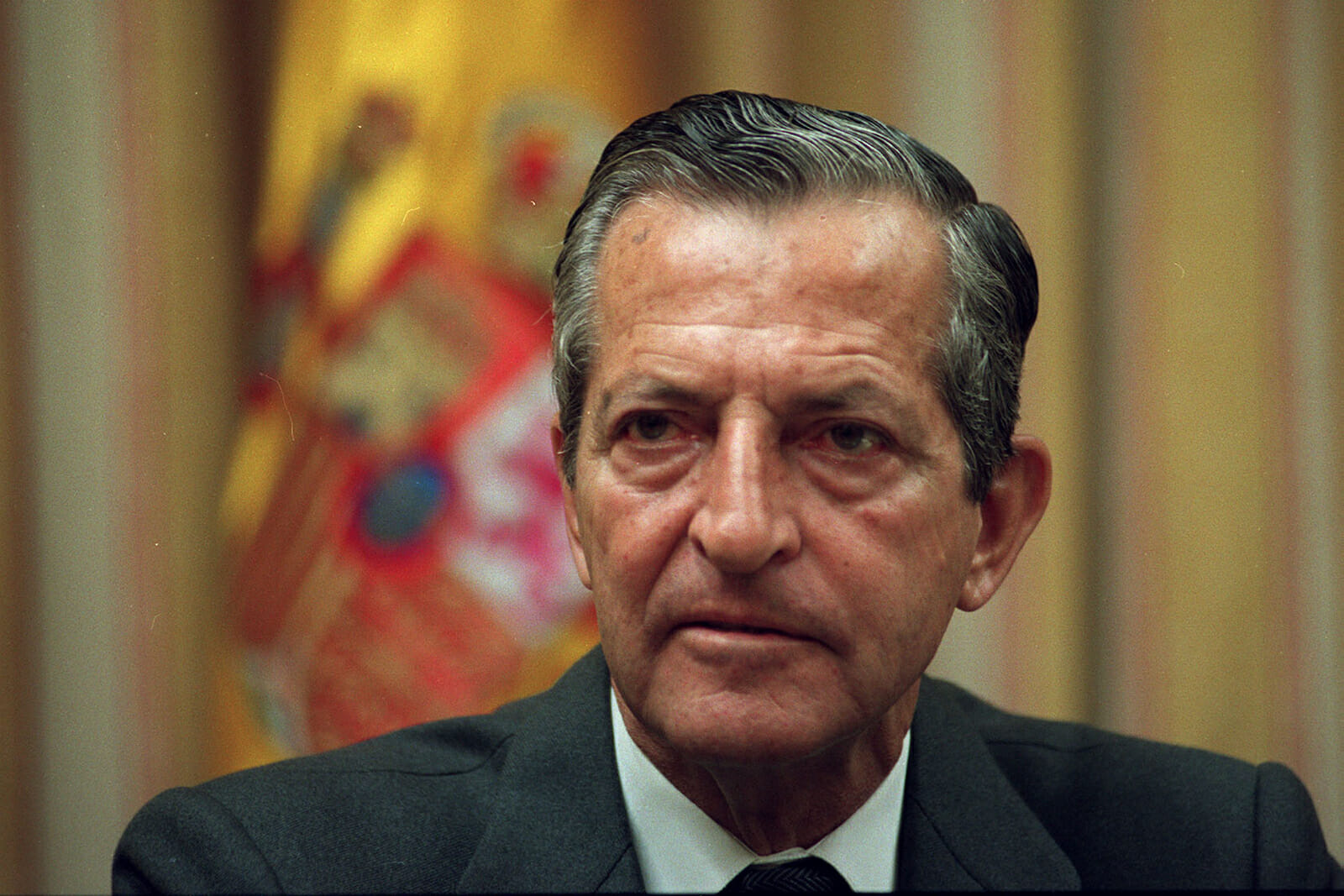
Adolfo Suárez: Spain’s Transitional Leader
Adolfo Suárez, who died on Sunday, was Spain’s first democratically elected Prime Minister after the Franco years and was an instrumental figure in ensuring the country’s transition into a constitutional state. “My pain is great, my gratitude permanent,” reads part of a statement delivered by a visibly emotional Juan Carlos, the Spanish King following the death of the former Spanish Prime Minister Adolfo Suárez. Behind him was a picture of the two men walking in a garden in Suárez’s home, the king’s arm around Suárez, who had been suffering from Alzheimer’s disease for many years.
Suárez who had been hospitalized last Monday with a “respiratory infection that later developed into pneumonia” passed away on Sunday. He was 81. He led Spain during one of the most crucial and delicate periods in the country’s recent history-following the death of Dictator Francisco Franco in 1975. Under his leadership, Spain embarked on its transition to a constitutional democracy, legalizing political parties and trade unions in what was described by the King as “one of the most brilliant chapters of Spanish history.”
Suárez was born in 1932 in Avila in the Castile and Leon province in North-West Spain and studied law at the University of Salamanca. He was a leading member of the National Movement party during the Franco regime and held several important posts in the party. He was 43 when he was asked by Juan Carlos to form a government in 1976.
Despite initial criticism over the choice from some circles, Suárez’s inclusive policies, particularly his decision to invite Socialist leader and future Prime Minister Felipe Gonzalez, who was then in self-exile in Paris and Santiago Carrillo, the chief of the Spanish Communist Party who was living in Moscow to participate in the establishment of a multi-party system won over his early critics.
He built a reputation as a skilled negotiator who understood the importance of co-operation and dialogue while making decisions to create a functioning and stable democracy. In 1977, Spain’s first democratic elections in 41 years were held and Suárez led his Union of the Democratic Centre (UCD) party to victory, thus becoming the first democratically elected Spanish head of government after the Franco regime.
In 1978, a new Constitution was drafted and was later ratified after its approval by a referendum. A coalition led by Suárez then went on to win the 1979 elections-the first under the new Constitution. However, he soon had to deal with escalating acts of terrorism by the Basque separatist faction ETA and discontentment with his policies in many other Spanish autonomous regions, where separatist movements had begun. Faced with internal challenges and resignations from his own political party, Mr. Suárez resigned from office in 1981, notably stating that any other option would have risked making Spain’s democratic transition a “parenthesis in history.”
However, Suárez would soon receive admiration for his actions during the dramatic events which followed merely days later. On 23 February, 1981, in what has come to be referred to as 23 F, 200 armed military officers of the Guardia Civil, led by Lt. Colonel Antonio Tejero stormed a session of the parliament, which was in the process of appointing a successor to Suárez in an attempted coup’ d’état.
After Tejero ordered the parliamentarians to lie on the floor and his men shot several rounds from their submachine guns into the ceiling, Suárez calmly remained sitting down along with Minister of Defense General Manuel Mellado and Communist leader Santiago Carillo, who calmly lit a cigarette and occupied his seat, while others lay on the floor. Later, Suárez and Mellado would defiantly confront the rebels and order them to disarm.
The stunning events were recorded by television cameras that had been placed in the parliament and broadcast later. The denouncement by the King and lack of support from other military figures would lead to the attempted coup failing the next day. The same year, Suárez was made a part of the Spanish nobility, being conferred upon the title of the Duke of Suárez. He remained a respected member of the Spanish Congress of Deputies until 1991, leading the newly formed Democratic and Social Centre party (CDS). In 1996, he was awarded the prestigious Prince of Asturias award for his “contribution to democracy.”
A poll conducted in 2007 saw Suárez being voted as the most respected Prime Minister in recent Spanish history by his fellow countrymen. Charismatic and composed, generous and foresighted, Suárez was described as the “best bridge for reconciliation between Spaniards” by current Prime Minister Mariano Rajoy, adding that Spain had lost “one of the great men of our time” and that everyone was “today enjoying” the results of his actions.
Suárez’s wife Maria del Amparo died from cancer in 2001. His eldest daughter also succumbed to the same disease three years later. In 2005, Adolfo Suárez Illana, his son announced that his father was suffering from Alzheimer’s disease and that he could no longer remember his tenure as Prime Minister. Spain has declared three days of official mourning and decided to rename the capital’s main Barajas airport after him, making Suárez only the second man after the revered poet Federico Garcia Lorca to receive such an honor.
